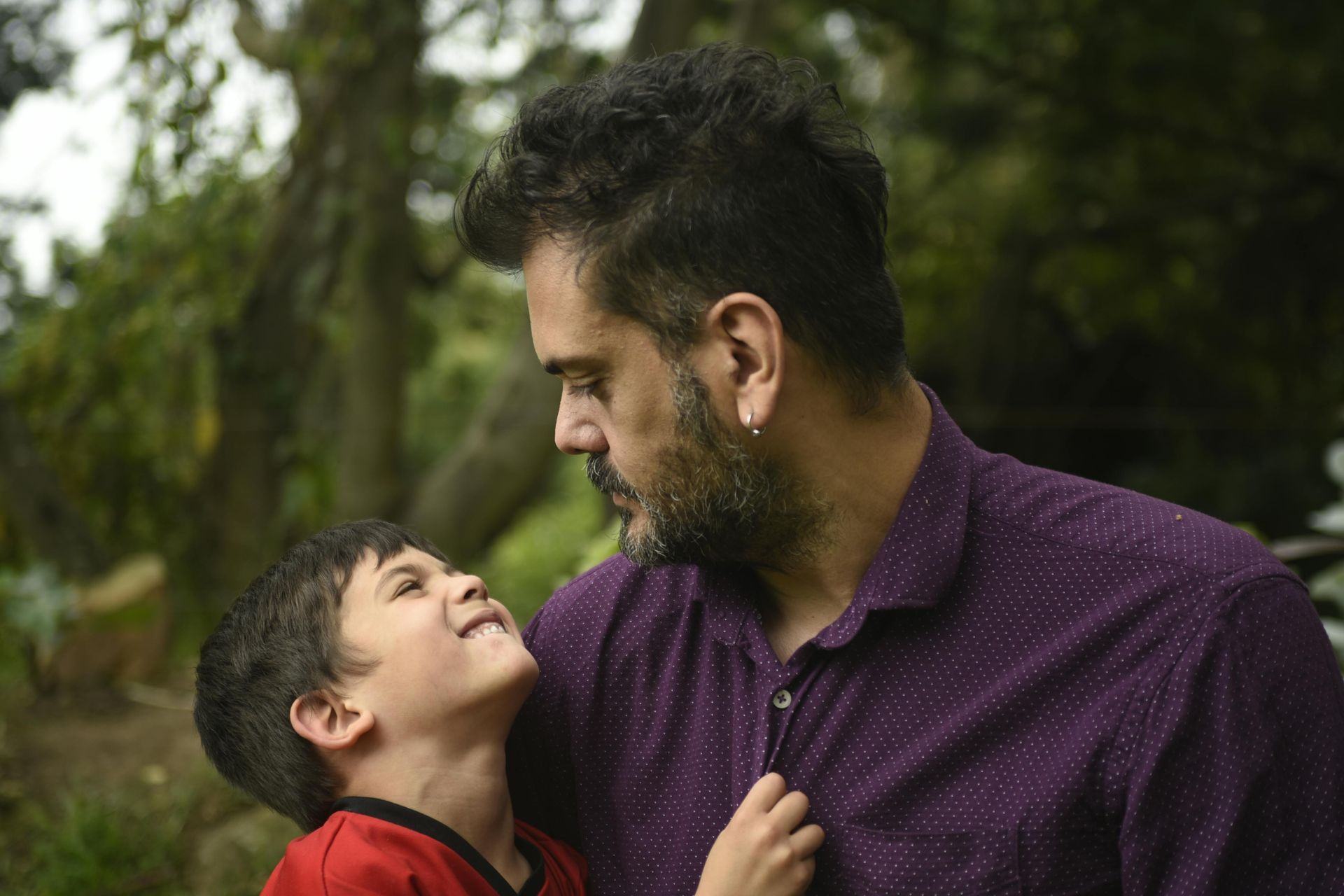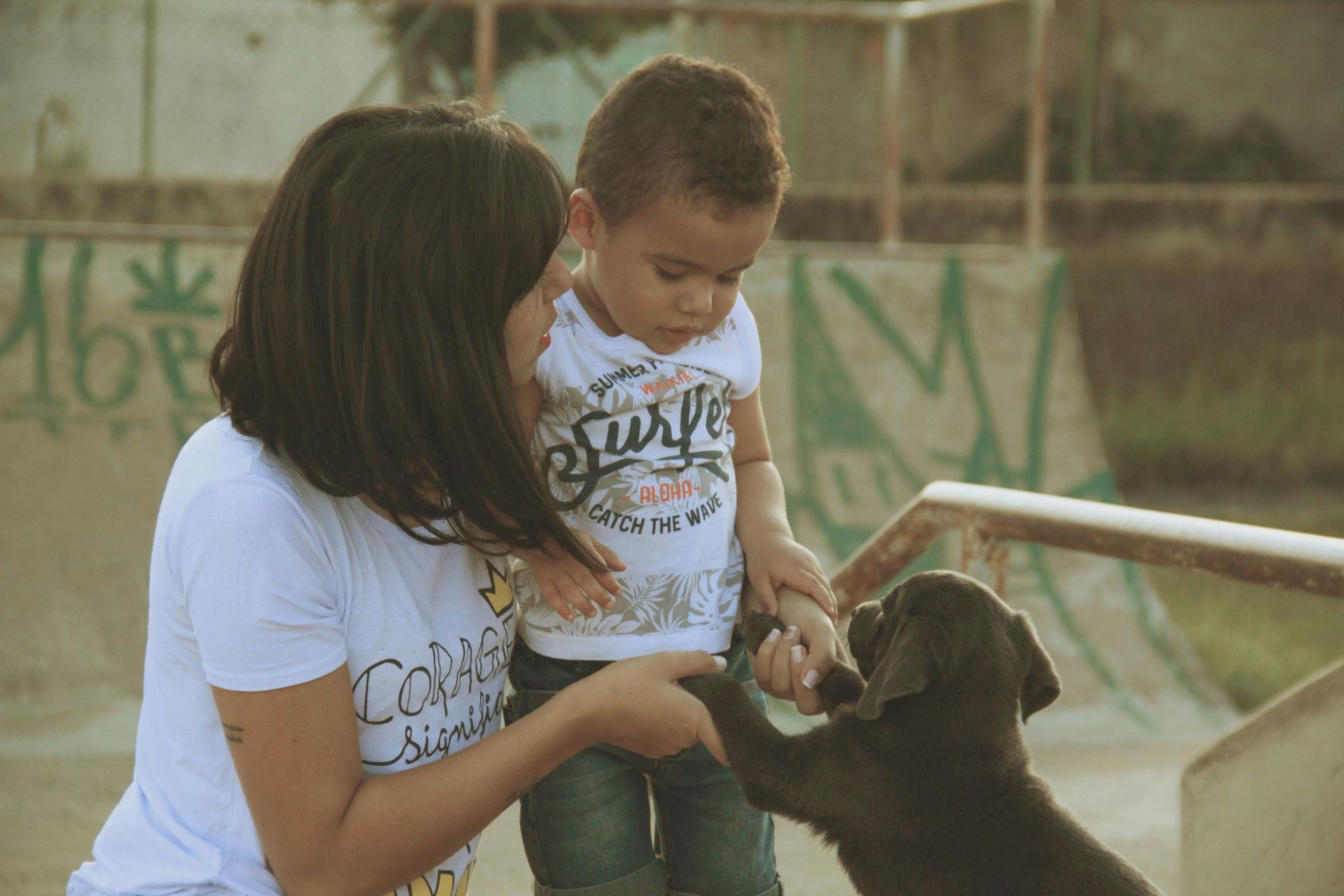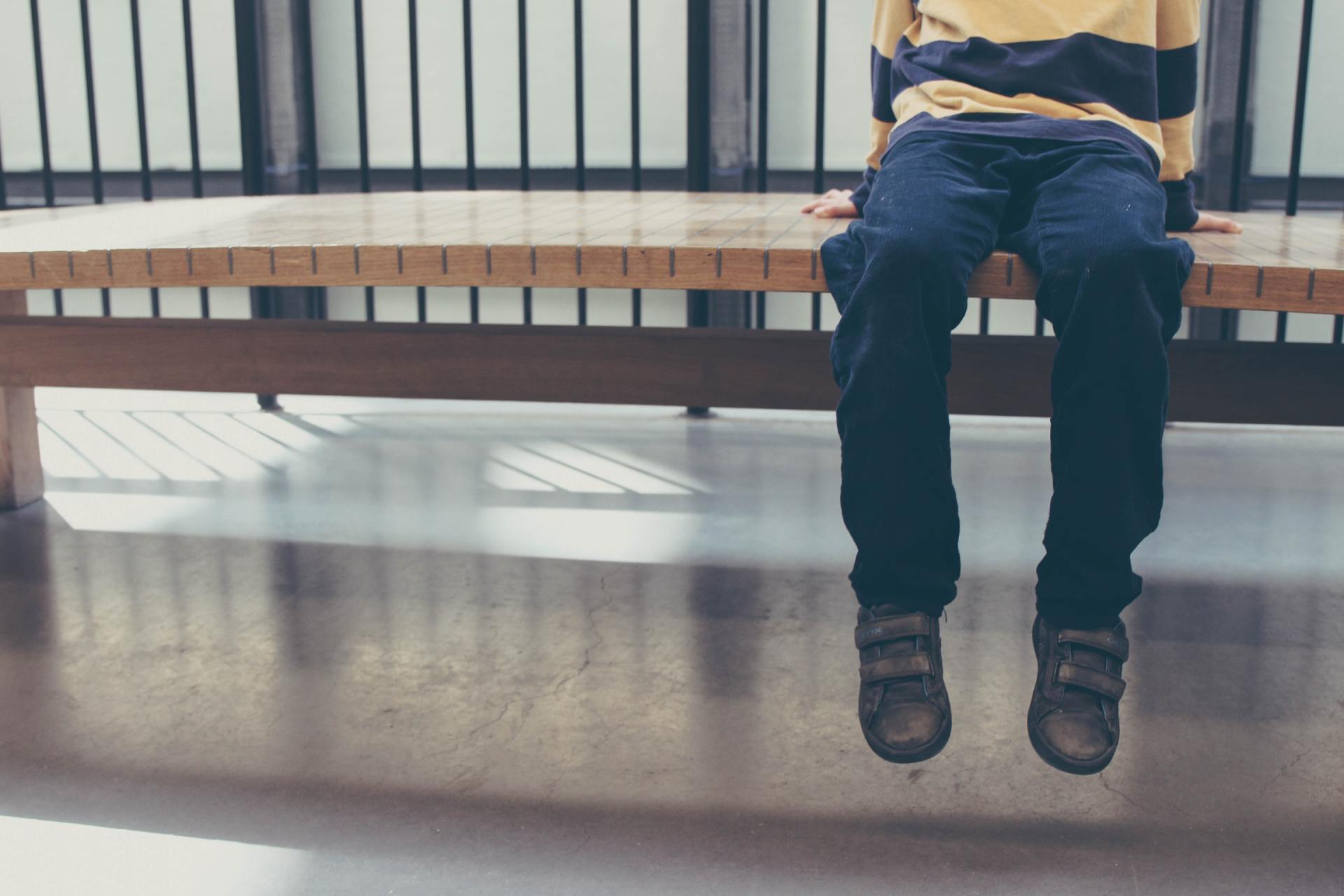Blog
THE TRUTH ABOUT PARENTING

I have had the opportunity to sit on both sides of school struggles, both as an educator and a parent. I know firsthand how essential collaboration between school and home is to a child's success. I've been the teacher who had to broach a very sensitive issue with parents. I've also been the school counselor who had to inform parents of serious mental health and safety concerns. But nothing compares to being the parent. This week has been filled with emails back and forth for one of my children. We are so lucky to have the world's best teacher in a classroom with far less students than the national average. This teacher goes out of their way to accommodate our child, instill a deep sense of belonging in them, and maintain open communication about it all with us. Teachers like this one are magical. This week has been hard for us as parents. This week has been challenging (no doubt) for this teacher. BUT the week has been devastating for our child. The emotional dysregulation they must have been feeling to cause the behavior that occurred must have felt so awful! I can imagine myself in their shoes feeling the injustice, unfairness, and anger and lashing out in an attempt to be heard. Does my child's emotional dysregulation justify their actions? Absolutely not! Does it warrant punishment? Absolutely not! My child is great at naming their emotions (when prompted) and naming a strategy or tool to use to regulate (when prompted), but they cannot YET navigate emotional regulation on their own. That YET is the magic of growth mindset. It's not that they cannot do it, it's just that they have YET to master the skill. This is why punishment is not the answer. Punishment does not teach. Punishment shames and blames and provides no path forward. I've worked with many parents over my more than 20 years in education who resort to punishment to address school-related issues. On the surface this may seem like a great way to reinforce that school and home are a team, but it can really leave a child feeling like they have no safe space. Shouldn't a child's home feel like the safest place of all? For my children, I want home feel like respite. I want my presence to feel like safety. When something bad happens, I want my children to think of home as the place where we work through things together. That's why even though this week has been filled with concerning emails from school there has been no punishment at home. I think it's also important to note there has been no punishment at school. We are also very lucky to be part of a school that believes in restoration and consequences instead of punishment. Has our child missed a few recesses? Yes, but not as punishment, instead it was used as time to have a restorative conversation with skilled staff who have guided our child through reflection and repair. So if school isn't punishing and neither are we, what the heck are we doing? Regulating first. I won't lie, I have felt very upset and frustrated this week, but I have to regulate my own emotions first. Deep breathing, visualization, and baking have been my strategies. I want to be sure I am calm and emotionally regulated before I attempt to co-regulate with my child. Plus, I think a treat can help improve any situation! Being present. I get as close as I can to my child. Sometimes they like to sit on my lap, other times they prefer to sit next to me. My close proximity helps them feel connected, regulated, and safe. Listening. I read the school emails to my child. I listen as they tell me what happened and how they felt. "I hear you saying you were so mad!" Empathize. I empathize with them. I let them know their feelings make sense. "I have felt like that before too." Getting curious. I ask questions to invite them to reflect. "What were you thinking when they said that to you?" and "How did you feel after you pushed them?" Exploring alternatives. We talk about getting into our pretend time machine and going back to redo the situation. It's amazing how many different ways they can come up with handling the situation in a more peaceful and safe way. "If you had gone to the back of the line instead what do you think would have happened next?" Practicing. We practice the scene where I play the other child and they play themselves or vise versa. Laughing and play should be part of all learning. We laugh and play while we practice. Sometimes I use silly voices or say silly things. Practice is essential because my child has YET to master the skills needed to handle these peer situations in any way other than the one that prompts a concerning email! Acknowledging attempts. Any and all attempts to use strategies and tools to stay emotionally regulated are acknowledged. They took a deep breath before responding to a sibling? Acknowledge! "I noticed you took a big belly breath before you answered your sister." They asked calmly for a few more minutes to finish playing? Acknowledge! "I heard you use a calm voice to ask for a few more minutes of play time." They have a calm, safe body? Acknowledge! "I'm noticing your calm, safe body right now." This acknowledgement helps raise self-awareness for them, reinforces our attunement to their emotions, and builds connection. This acknowledgement says to them, "I see you!" HOWEVER, this is not a magical cure. Spending time at home doing these things with my child is not going to guarantee that next week will be magically better. Emotional regulation takes modeling from grown-ups as well as time for them to practice for it to feel more automatic. All emotions are welcome and as a result our nervous systems will be triggered from time to time. Practicing emotional regulation allows for us to meet our dysregulation with understanding. It's only when we understand how we are feeling that we can begin to gain control of our thoughts and actions. For now I will collaborate with his teacher to advocate for his needs at school and continue to make home feel like a warm hug where we work through problems together and believe in the power of YET!

My youngest got off the bus last week dragging his feet. His body was slumpy, his head was down, and his little feet were slowly shuffling their way to the front door. I knew something was up. He's the kind of kid that wears his feelings out and proud. I helped him into the house, he washed his hands, we got him a snack, and I just sat there rubbing his back and waiting. What was I waiting for? I have learned that this boy of mine needs ample time to coregulate before he can talk. So I sat as close to his body as I could, rubbed his back in soft circles, and waited for his posture to perk up. After about 3 minutes he sat upright and gave me a funny face and laughed. He was back and ready to engage with me. Here's what I did next: I shared my observation with him, "You got off the bus with a slumpy body, your head down, and very slow feet. Tell me about that." My heart was not prepared for what he told me. "Nobody likes me." My heart sank. My precious boy, my treasure, thinks nobody like him? That can't be! He's funny, kind, creative, playful, the list goes on and on! I could tell him that what he thought couldn't possibly be true because of all the things that make him wonderful. But that would not make him feel seen and heard . That would merely invalidate his experience and neglect acknowledging his feelings. I could try to distract him from these sad feelings he's experiencing and try to make him happy by telling a joke or offering to play. But that would not make him feel seen and heard . That would merely send the message that his feelings weren't safe and should be avoided. Whatever I said in response had to let him feel seen and heard . So I simply revoiced what he said, "Oh, you feel like nobody likes you?" I offered a name for the feeling. "You are feeling left out and sad about that?" He confirmed that he was sad. I asked him to tell me what had made him feel sad. It turns out the group of peers he had been playing a pretend game with for a few weeks no longer wanted to play that game. Instead of joining the new game they had all moved on to, he was stuck still really wanting to play the old game. He felt left out when no one stayed to play with him. I could have told him what to do to resolve this playground problem. My years as a teacher and school counselor gave me plenty of experience helping students navigate this very problem. But that wouldn't make him feel seen and heard . Are you sensing a theme yet? However hard it may be for us to hear about our kid's heartbreak we have to be careful not to solve their problems for them. Instead we can make them feel seen and heard by holding space for them, listening intently, validating their feelings, and brainstorming together ways to solve the problem (although most times they just need a listening ear). Here's what I said next: "It sounds like you were still enjoying the game, but everyone else wanted to play a different game. You felt sad and left out when everyone left you. I understand why you felt hurt." Then I asked: "And then what happened after they played a different game?" He told me he found another friend and they played together. He had actually solved the problem on his own. All he needed from me was to feel seen and heard . He crawled into my lap and we hugged for some time. He didn't want to talk about it anymore and was ready to move onto playing with his toys, but before he could get down I said, "I am always here to listen and talk about how you are feeling." Sometimes our kids just need to feel seen and heard .

Emotional dysregulation can pop up unexpectedly when we feel triggered. Emotional dysregulation happens when a switch in our brain that flips from logical thinking to emotional thinking - think fight, flight, freeze, or fawn responses. The term "trigger" has become such a buzz word lately, but I assure you it isn't a fad. Triggers are the event or situation that creates the emotional dysregulation. Our triggers are typically tender spots as a result of past experiences (childhood). Here are some ways to help you identify your triggers: Find your calm - in order to identify when you are triggered, you have to know how you feel when you are calm How does your body feel when you are calm? Are you able to think and reason when you are calm? What is happening/not happening around you that helps you feel calm? Tune into your body - we feel our emotions throughout our bodies How does your body feel when you are dysregulated? What are the physical sensations (furrowed brows, clenched jaw, rigid body)? What are the physiological responses (heart rate, shallow breathing, upset stomach)? Give the feeling a name - naming our feelings helps us to tame them Start with identifying the primal emotions you feel - anger, grief, fear, joy, shame, surprise Once you have the primal emotions mastered move to a feelings wheel - explore all the variations of each of the primal emotions Use calming tools to get regulated - not a one size fits all approach practice often - calming tools should be used like a multivitamin (daily), not like a fire extinguisher (only in emergencies) practice a variety - different tools work in different situations, it's good to have a variety to choose from keep it simple - deep breathing is about as simple as it gets and it's really effective We will all feel emotionally dysregulated from time to time, but we can avoid an extended stay at the dysregulation station when we identify our triggers.

I've learned to recognize the signs of my anxiety: feeling like I have pent up energy without direction or purpose, impatience with others, persistent feelings of failure, a fixed mindset, and intense pressure to make it "all better" right now. Thoughts racing through my mind during these times sound like, "you just don't have what it takes..." or "if only you (insert unrealistic expectation) you wouldn't feel like this." Because I have these feelings coursing through my body and these negative thoughts racing through my mind, I find myself behaving in ways that are not typical for me. I feel very impatient with my kids, like their stories take forever and I have no patience to listen. I am irritated at my husband for no reason and there's nothing he can do to help. I place wildly unrealistic expectations on myself as if I'm looking for ways to add to the self-loathing. It's a recipe for disaster and I'm my own worst enemy! There's good news! I have learned to recognize what's happening and read the signs. My formal education in the field of mental health, my experience helping others with their mental health, and the help I've gotten from my amazing therapist have helped me identify that my thoughts influence my feelings which influence my behavior. And here's the better news, I have learned ways to identify what I can do to stop that spiraling in its tracks. And you can too! Parents never get a day off so when we are experiencing mental health challenges it can really impact how we show up for our kids. We have a responsibility to them to learn ways to regulate our emotions so we can show up as the safe, dependable, supportive caregiver they deserve. So what can we do to make things better? For me, it's all about self-care. Pent up energy with no purpose? Talk a walk, exercise, go run some errands Impatience with others? Use grounding exercises that help focus on the present moment: body scans, tapping, stretching, deep breathing, the list could go on and on Feelings of failure? Write a gratitude list, make a to-do list of easy tasks I know I can accomplish (think dishes, restocking toilet paper in the bathroom, etc.) Fixed mindset? I take myself back to this very day last year and take stock of everything that has improved or ways I have grown Intense pressure to make it all better? Do something that will make something better like cleaning out the junk drawer, organizing the bathroom cabinet, making a special treat for the kids Maybe you're thinking, "well, that's nice, but I don't consider those things self-care." Self-care looks different for each of us. Self-care is simply prioritizing your needs so you can take care of yourself. But self-care can look like going to bed early, reading, taking an "everything shower" (IYKYK), enjoying extra time on the couch with a cup of coffee, or communicating your need to take care of yourself to your partner. If you're anything like me, the act of self-care can feel selfish. My parents modeled never taking care of themselves very well and always prioritizing others' needs before their own. This leads to burnout and ends up hurting the people we live with. We can be proactive and choose to take care of ourselves well so we can take care of others without feeling drained. The more we pour into self-care and being attuned with our feelings, the more attuned we can be to our thoughts, and the more intentional we can be with our behavior. This allows us to take time for self-care and avoid spewing our toxic sludge onto our kids and partner. What can you do to prioritize self-care more regularly?

In my certification program at Jai Institute for Parenting my coach asked the group: What parts of yourself have you had to hide to make yourself more palatable for others? The whole group was quiet. I sat there holding back tears. I wasn’t expecting to cry in class, but the question hit me hard. As a child, my parents told me I was bossy , mean , a liar , and too sensitive and the worst part was that I believed those things to be true. I know in many ways they still see me the same way. The truth is this: labeling our children’s behavior only hinders our ability to truly connect with them. We have to intentionally ditch the practice (that’s likely been passed down from generation to generation) of labeling our children and making them hide certain parts of themselves so they can be more palatable for us. I challenge you to see your child as whole and worthy of your unconditional love and adoration. As a school counselor, I practiced the art of reframing. Reframing helps us to look at a situation or label in a different way. I was often able to tell more about the limiting beliefs a grown-up had about a child than I could about what the child was really struggling with. Let’s use my labels as an example: bossy = assertive with others, has leadership qualities mean = still working on communicating boundaries respectfully liar = needs to feel safe to say what’s hard, needs opportunities to develop confidence and self-esteem too sensitive = tender-hearted, empathetic, feels deeply, needs opportunities to develop confidence When we see our children’s short-comings as opportunities to grow and learn instead of labeling them as part of their identity we allow ourselves to see what’s true: Our child’s behavior is not their identity. Children are constantly growing, learning, and changing (so are we!). A growth-mindset allows for us to appreciate the enormous potential each of us hold. Reframing our child’s short-comings as opportunities for growth and learning helps build a stronger connection with them because we allow ourselves to see them as the beautifully imperfectly perfect beings they are. Go ahead and ask yourself that tough question: What parts of yourself have you had to hide to make yourself more palatable for others?

It's setting an intention to hold space for your child. It's important to set aside time every day to listen to your kiddo. Maybe you're in the middle of something and can't give them you're undivided attention, that's okay. You could say something like, “I have to make dinner right now, but we can make a plan to chat as soon as I'm finished." The quality of your listening is far more important than the quantity! It's staying present and focused on your child. It may be a good idea to move to a more private space so your distractions are limited. Give phones, TV, and your to-do list a break. Lean in to them, give them your eye contact, let every bit of you communicate to them you are listening. It's listening without judgement. This is hard to do! Using validating statements such as, “I hear you saying you felt left out” or “I have felt like that before too” instead of “You must have been so upset” or “That’s not fair” let's them feel heard without us offering our assessment or judgement. It's talking as little as possible. Give your undivided, uninterrupted listening ears to the precious being before you. It’s hard not to interrupt, add comments, or finish their sentences, but to truly listen we have to be quiet. It's pausing to reflect and notice. It’s a good idea to ask them to pause from time to time to rephrase what they have said to be sure you are getting the details right. It could sound like, "You wanted to play, but they told you there wasn't room for you in the game?" or it could sound like a "noticing" statement, "I noticed when you were telling me what happened you looked sad." When we take time to listen to our children we are building connection and showing them how much they matter to us. What a powerful message that is.


